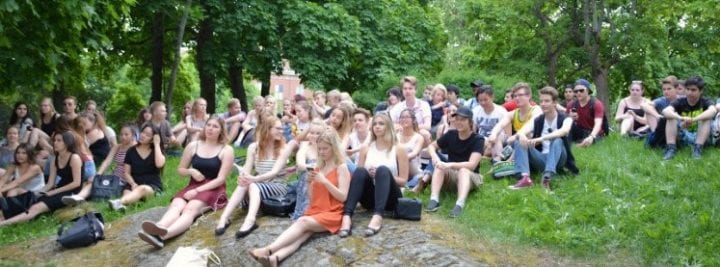IB Diploma Programme
MISSION STATEMENT
Our aim is to support the students’ growth towards internationally minded, caring and reflective builders of sustainable future.
We encourage students to explore knowledge across a range of disciplines in local and global context.
We emphasize communication and cooperation, and respect honesty and open-mindedness.
In our multicultural environment, we foster human and cultural diversity.
THE IB OPEN HOUSE IS ON THURSDAY, JANUARY 8, 2026.
You can visit our upper secondary facilities starting at 5:30 p.m.,
and there’ll be a joint info session in the auditorium at 6:30 p.m.
Welcome!
Information about admission for academic year 2026-2026
IB Sumino cooperation
International applicants 国际学生申请联系方式
Sumino is the only official partner of Turku Normaalikoulu for international students’ admission consultation. Please contact Sumino via the following link.
Webpage: https://sumino.fi/turkuIBschool/
Email: info@sumino.fi
書米国际教育(Sumino)为我校唯一指定官方合作机构,请国际学生联系書米国际教育咨询申请事宜。
网页:https://sumino.fi/turkuIBschool/
微信:

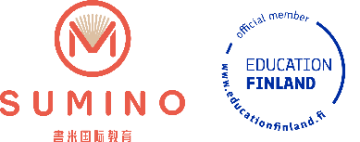
DP, basic information
- IB Diploma Programme is a challenging pre-university programme of international education offered by the International Baccalaureate Organization (Diploma programme at the IBO website)
- Founded in 1968, the IBO is a non-profit educational foundation
- There are more than 2700 schools in about 140 countries offering the IB Diploma Programme. In Finland the number of IB DP schools is 16.
- The IB Diploma Programme leads to a qualification that is widely recognized and appreciated by universities all over the world.
- In Finland the IB Diploma is considered equivalent to the Finnish matriculation examination.
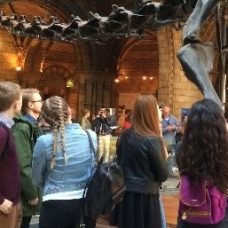
IB Diploma Programme in Turun normaalikoulu is preceded by a one-year Pre-DP Programme which follows Finnish national upper secondary school first year curriculum. The language of instruction in Pre-DP is English. Pre-DP is implemented in order to ensure sufficient skills in the language of instruction (English) and to introduce working methods that are typically used in the IB Diploma Programme.
Around 95% of the IB Diploma graduates enter universities in Finland, Britain, other European countries or elsewhere in the world. The most successful graduates often gain admission to prestigious European and North American universities.
DP subjects
The Diploma Programme (DP) curriculum is made up of six subject groups and the DP core, comprising theory of knowledge (TOK), creativity, activity, service (CAS) and the extended essay (EE).
Through the Diploma Programme (DP) core, students reflect on the nature of knowledge, complete independent research and undertake a project that often involves community service.
The DP subjects are chosen at the end of the pre-DP year. Students must choose 6 subjects from DP subject groups 1-5, at least one subject from each group (group 6, Arts, is not offered). Three subjects must be chosen at higher level (HL) and three subjects at standard level (SL). It is possible to choose 4 higher level subjects and an additional 7th subject.
At higher level the number of teaching hours is 240 and at standard level 150.
If a student needs all sciences (biology, chemistry, physics) for medical studies at university he/she does not need to choose a group 3 subject. A specific permission by the IBO is required.
DP subjects
| Subject group | Subject | Level |
| Group 1 Language A Language and Literature | ||
| English A | HL SL | |
| Group 2 Language Acquisition | English B | HL SL |
| French B French ab initio | HL SL SL | |
| German B German ab initio Spanish B Spanish ab initio | HL SL SL HL SL SL | |
| Finnish B | HL SL | |
| Group 3 Individuals and Societies | Business Management | SL |
| Economics | HL SL | |
| History | HL SL | |
| Psychology | HL SL | |
| Group 4 Sciences | Biology | HL SL |
| Chemistry | HL SL | |
| Physics | HL SL | |
| Group 5 Mathematics | Mathematics Analysis and approaches Applications and interpretation | HL SL SL |
| Core components | Theory of Knowledge (TOK) | 100 h |
| CAS programme Extended essay (EE) | 18 months 4000 words |
Pre-diploma year
- The IB Diploma Programme (DP) lasts for two
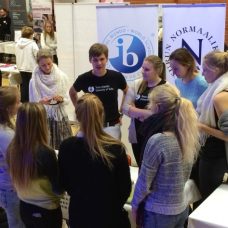 years and is preceded by a pre-diploma year aiming at developing the students’ general knowledge as well as study and language skills.
years and is preceded by a pre-diploma year aiming at developing the students’ general knowledge as well as study and language skills. - The pre-DP year curriculum is a modified version of the national curriculum and the language of instruction is English.
- Students complete 25-30 courses in the pre-DP year.
- All students study either German, Spanish or French. Students with no previous studies in these languages study 4 courses and advanced students study 2 courses. The courses are compulsory.
- Other language studies must be approved by the DP coordinator.
- In addition, Turku International School (TIS) students with previous knowledge of the Finnish language take 2 courses of Finnish B in the pre-DP year.
- TIS students with little or no knowledge of Finnish take 3 courses of Finnish in the pre-DP year.
- If a student intends to take some other Language A than English, he/she has to study it with a private teacher during the pre-DP year at his/her own cost.
- DP coordinator can be consulted on questions regarding other Language A arrangements.
Subjects and Number of Courses
Languages:
Language A English 3
Language B Finnish 3
Language B (advanced): German, Spanish or French 2
Language B (beginners): German, Spanish or French 4
Mathematics 4 or 5
Natural Sciences: Biology 1-2, Physics 1-2, Chemistry 1-2, Integrated sciences 1
Humanities: History 2, Psychology 1, Social Studies 1, Academic thinking skills 1, World today 1
Other subjects: Art or Music 1, Physical Education 1, Guidance and counselling 1
A short introduction to the courses
Independent studies
- Due to family or medical reasons a student may have to be absent from school and work independently for some time.
- The school should be informed of such a case and preferably in advance, if possible.
- The permission application for absence is made in Wilma.
- The principal grants permissions to do the required course work independently.
Pre-DP year evaluation
- Students are assessed five times a year at the end of each study period. The grade reports are available in Wilma.
- The courses are evaluated on a scale of 10 (excellent) to 4 (fail).
- If all course work is not submitted the student is awarded the grade K (= unfinished work). Grade K is automatically replaced by a 4 (fail) after the next study period.
- Teachers are not required to accept work which is turned in late.
- Students can try to raise a course grade by signing up for a retake exam via Wilma.
- A retake exam can be taken only once per course.
- The dates for the retake exams can be found on the school’s website.
Absences
- All students are expected to attend school regularly. Absences from school must have a legitimate excuse and teachers should be informed of them in advance, if possible.
- All absences must be cleared by a parent/guardian or a medical professional (doctor, dentist etc).
- If a student has three to four absences the teacher will determine whether he/she can evaluate the course.
- More than four absences results in the incompletion of the course and the student must study the course independently.
- The last retake exam is arranged in mid-June.
- The pre-DP year cannot be repeated.
Conditions for moving on to DP1
- To choose a higher level (HL) subject the student should have at least a minimum average grade of 7.0, although an average grade of 8.0 or more is recommended
- For a standard level (SL) subject the required minimum grade average is 7.0.
- Students must meet the requirements below to select six DP year subjects (see section below for eligibility).
- Students have to choose 3 higher level (HL) subjects (max. 4) and 3 standard level (SL) subjects from DP subject groups 1 – 5.
- The sixth subject is chosen from groups 2 – 4.
- Students must have completed all pre-DP year courses with a grade 5 or above by the end of the school year.
Subject Group 1
English A (HL/SL)
Subject Group 2
Finnish B (HL/SL), French B (HL/SL), French B ab initio (SL), German B (HL/SL), German B ab initio (SL), Spanish B (HL/SL) Spanish ab initio (SL)
Subject Group 3 History (HL/SL), Psychology (HL/SL), Economics (HL/SL), Business Management (SL),
- To qualify for Business Management SL students should have at least grade 7 in social studies (SOC).
- To qualify for Economics SL or HL students should have at least grade 7 in social studies (SOC), for Economics HL grade 8 or more in SOC is recommended.
Subject group 4
Biology (HL/SL), Chemistry (HL/SL), Physics (HL/SL)
Subject Group 5
- Two different mathematical subjects are offered in the DP: Mathematics, Applications and Interpretation (MAI) SL and Mathematics, Analysis and Approaches (MAA) SL and HL.
- If the student chooses the short version of math (4 courses) in the pre-DP, they must take SL Mathematics Applications and Interpretation (MAI) course during the DP.
- If the student chooses the long version of math (5 courses) in the pre-DP, they can take either Mathematics, Applications and Interpretation (MAI) at SL or Mathematics, Analysis and Approaches (MAA) course at SL or HL in DP.
- For MAA SL an average grade of 7.0 or more is required and for MAA HL an average grade of 8.0 or more is recommended.
- For MAI SL an average grade of 6.0 is required.
N.B. Due to timetable reasons some subjects have to be taught at the same time. The overlapping subjects are physics and history / chemistry and psychology/biology and economics.
DP1 subjects and evaluation
DP subject briefs
The link above will take you to the official IBO Dipoloma Programme web pages where you can study the content, syllabus and evaluation of each of the IB subjects. TOK, CAS and EE information is there as well.
Evaluation in DP1 and DP2
- IB grades range from 7 (highest) to 1 (lowest).
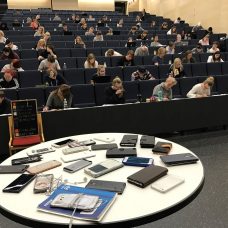
- Thus 6 subjects give maximum 42 points, TOK and EE max 3 bonus points. So the maximum points in the IB Diploma is 45.
- Students are given grades after each of the five study periods as a course ends. In DP1, there are 5 HL courses and 3 SL courses and DP2 4 HL courses and 3 SL courses.
- In DP2 the students have two mock weeks (mid-term exam weeks) to practise time management and test their knowledge and skills.
- If a student is absent from a mock exam, they must present a doctor’s certificate or the guardian must clear the absence to the form teacher and DP coordinator. This is a requirement for rescheduling the exam.
- Failure to submit all course work can result in the grade K (= unfinished work). A numerical grade will be awarded once the work has been completed.
- Teachers are not required to accept or assess work turned in late.
Absence control in the DP
- All students are expected to attend school regularly. Absences from school must have a legitimate excuse and teachers should be informed in advance, if possible.
- All absences must be cleared by a parent/guardian or a medical professional (doctor, dentist etc).
DP 2
IB final examinations schedules
The link above will take you to the following two exam sessions. The exams of one subject is usually divided between two days. Sometimes the students have two different subjects tested on the same day.
Conditions for the award of the IB Diploma
- all six IB subjects are compulsory and have to be taken in the final examinations
- the students have 3 opportunities to take the examinations, this does not have to take place in consecutive sessions
- most subjects can be taken in May or November sessions
- a minimum total of 24 points in six diploma subjects
- a minimum average grade of 4 in HL subjects (note: 3 is sufficient if have grade 5, 6, or 7 in another HL subject)
- a minimum average grade of 3 in SL subjects (note: 2 is sufficient if have grade 5, 6, or 7 in another SL subject)
- a minimum of 12 points altogether in 3 HL subjects
- a minimum of 9 points in 3 SL subjects
- completion of all IA work, done at home or at school and is part of the final grade being 25-50 % of the final grade.
- completion of all TOK components, no grade E
- completion of all CAS components
- completion of the Extended Essay, no grade E
- all pending fees must have been paid, the final exam cost about 600 euros
- Failing to meet one or more of the criteria above means no diploma awarded.
DP curriculum
Academic honesty policy Turun normaalikoulu (Turku teacher training school) 2023
Admission policy in Turku teacher training school 2022
Assessment policy Turun normaalikoulu (Turku teacher training school) 2022
Inclusion policy Turun normaalikoulu 2022
Language policy Turun normaalikoulu (Turku teacher training school) 2022
CAS
Creativity, activity, service (CAS) is one of the three essential elements that every student must complete as part of the Diploma Programme. Studied throughout the Diploma Programme, CAS involves students in a range of activities alongside their academic studies. CAS is not formally assessed. However, students reflect on their CAS experiences as part of the DP, and provide evidence of achieving the seven learning outcomes for CAS.
Creativity – arts, and other experiences that involve creative thinking.
Activity – physical exertion contributing to a healthy lifestyle, complementing academic work elsewhere in the DP.
Service – an unpaid and voluntary exchange that has a learning benefit for the student. The rights, dignity and autonomy of all those involved are respected.
Please read more: https://www.ibo.org/programmes/diploma-programme/curriculum/creativity-activity-and-service/
Here some examples:
Kalle´s CAS story:
For my activity strand, my goal is to improve my balancing skills in skateboarding. It is an ongoing activity in which I regularly participate. I wanted to improve my balancing skills because it is one of my weaknesses in skateboarding. In order to achieve my goal, I need to push myself out of my comfort zone and practice intensely to learn more balancing tricks. Often, it is a strenuous process as I try a trick for hours at a time. Usually, I do not learn anything in a single session, but over time my body and board land in the right places and I learn a new trick. As this happens, I reflect on what my body is doing and figure out the techniques required for the trick. This is my favourite part of the learning process as I get a eureka moment.
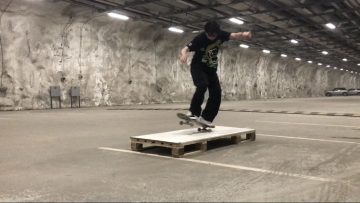
The photo above shows me performing a skateboarding trick called “kickflip to regular manual”. This was a significant moment in developing my balancing skills because it was my first flip trick to a balancing position.
*Kalle DP1 student
Jenny´s CAS story
CAS-project is something you need to do within the CAS program. It is a longer project that must last for over a month and be done in collaboration with others. My friend and I decided to join an organization in Varissuo, Turku, called Together association. Through that association we got to take part in a project called Green Work Hubs. It is an international project that lasts nine months. We had a training course in Krannenburg, Germany, in January and met people from abroad that we will be working in collaboration with. The aim of the project is to bring awareness on climate change and encourage people to take actions for it. Now for the nine months we’re making an E-magazine and keeping that up while doing local activities. It is a very interesting and fun project that me and my friend are both interested in. CAS does not have to be something you force yourself to do. Seek out for opportunities and you might find yourself collaborating with loads of people from different countries.
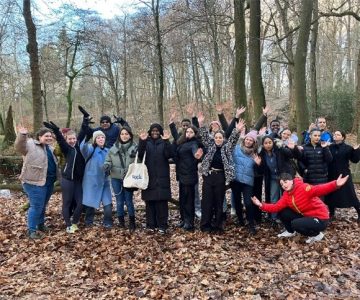
* Jenny DP1 student
Textbooks and materials
Teachers
| Eeva Sara | SEE | Finnish A |
| Eroma Mari | MER | Physical education |
| Haavisto Eevastiina | EHA | Mathematics |
| Hall Steven | SHA | Economics |
| Hiilovaara-Teijo Mervi | MHT | Biology |
| Hyvärinen Jaana | JHY | Special education |
| Karhu Päivi | PKA | Mathematics |
| Kaskenviita Rauni | RKA | Finnish A |
| Kujanpää Enni | EKU | Spanish |
| Laukkanen Herkko | HLA | Chemistry |
| Lehtilä Hanna Lindgren Rici | HLE RLI | Visual art Physics, TOK |
| Lintunen Pia | PLI | French, Business management |
| Mäkinen Susanna | SMÄ | Music |
| Nera Susanna | SNE | Finnish B |
| Nieminen Joonas | JNI | Finnish B, Academic thinking skills |
| Osmo Anne | AOS | Swedish |
| Taatila Ilona | ITA | German B |
| Raevuori Johanna | JRA | Psychology |
| Raiko Linda | LRA | Swedish A |
| Rajala Riitta | RRA | Physics |
| Rasmus Mirjam | MRA | Head of TIS |
| Salonen Elise | ESA | Psychology, Business management |
| Salminen Jenna | JSAL | English B, Theory of knowledge |
| Sarimo Jannika | JSA | English A |
| Sellman Klaus | KSE | Physical education |
| Tringham Maaria | MTR | Biology |
| Tähtinen Hanna | HTÄ | Finnish B |
| Sundgren Lotta | LSU | Guidance and counselling |
| Waltari-Grundström Anu | AWA | History, Social studies, CAS coordinator, Deputy head of school |
| Vanhatalo Marianna | MVA | Chemistry, DP coordinator |
| Vartiainen Katrina | KVA | Head of TNK upper secondary school |
| Viiniemi Minna | MVI | Social Studies |
| Vänttinen Juha | JVÄ | History |
Schedules of the school year
Autumn term: Thu 7.8.-20.12.2025
- Autumn vacation: Mon 13.10. – Sun 19.10.2025 (week 42)
- Christmas vacation: Sun 21.12.2025 – Tue 6.1.2026
Spring term: Wed 7.1. – Sat 30.5.2026
- Winter vacation: Mon 16.2. – Sun 22.2.2026 (week 8)
Study periods
Period 1 7.8.-30.9.2025
Period 2 1.10.-27.11.2025
Period 3 28.11.2025-3.2.2026
Period 4 4.2.-2.4.2026
Period 5 7.4.-30.5.2026
Assessment periods (pre-DP)
Assessment period 1 23.-30.9.2025
Assessment period 2 20.-27.11.2025
Assessment period 3 27.1.-3.2.2026
Assessment period 4 26.3.-2.4.2026
Assessment period 5 21.5.-28.5.2026
Retake exams (pre-DP)
- Tue 28.10.2025 at 16 – 19
- Tue 13.1.2026 at 16 – 19
- Tue 3.3.2026 at 16 – 19
- Tue 5.5.2026 at 16 – 19
- Wed 10.6.2026 at 9 – 12 (pre-DP)
Guardians’ and parents’ evenings
Other events
- Penkkarit event Thu 5.2.2026
- Day of the Oldest /Wanhat Fri 6.2.2026
Daily working hours at school
1. lesson 08.30-09.45
2. lesson 10.00-11.15
3. lesson 11.30-12.45
4. lesson 13.15-14.30
5. lesson 14.45-16.00
Study support and guidance
Study welfare team
Key persons
Principal Katrina Vartiainen 0400 831009
Guidance counsellor Lotta Sundgren 050 3596682
IB-coordinator Marianna Vanhatalo 040 5773395
Social worker Anna Grönroos 040 5587945
School psychologist Liisa Ritakallio 044 7109627
Special teacher Jaana Hyvärinen 050 5327080
School nurse Vilma Alcenius 040 1498500
e-mails: first name.surname@utu.fi
Students’ welfare work is the responsibility of everyone working in the school and it is carried out in co-operation with homes. The key persons in the welfare team are listed above. The student whose issue the team is considering can attend the meetings and the same applies to guardians, form and subject teachers.
The main goal of the team is to take care of the students’ physical, mental and social welfare. The team also promotes the safety and welfare of the whole school community.
Guidance counsellor
The guidance counsellor for high school is Lotta Sundgren 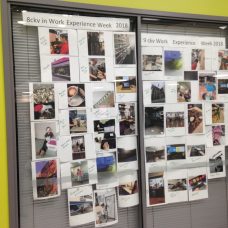 , whose office is on the 3rd floor, room A3025. Tel. 050 3596682, e-mail: uhsund@utu.fi
, whose office is on the 3rd floor, room A3025. Tel. 050 3596682, e-mail: uhsund@utu.fi
The guidance counsellor advises students in matters such as general studies, career choices, further education and work life. The guidance is given in lessons as well as at personal and group meetings. The work is carried out in co-operation with other teachers and the student welfare team. The guidance also includes visits to colleges, universities and further education open days.
School nurse
The school nurse is Vilma Alcenius (p. 0401498500). You can contact the nurse in all matters related to health and wellbeing, for example:
- nonacute healthcare
- health counselling (e.g. sleep, nutrition, exercise)
- contraception and sexual counselling
- mental health and substance use matters
- support with stress management and ability to study
- vaccinations
The nurse will also invite the students to attend a health checkup during the first year and also at other times if needed. If necessary, the nurse will refer you to, for example, the doctor, the school social worker, the study psychologist, or the school psychiatric nurse.
School social worker
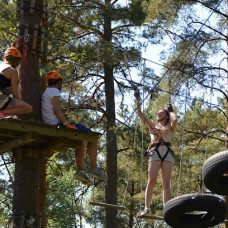
The school social worker aims at solving the students’ problems in studying. She also works in co-operation with guardians, teachers, the school welfare team and external experts. If needed she also guides families how to contact specialists outside school. Both guardians and students are welcome to discuss even personal matters with the curator. All discussions with the social worker are confidential.
The school social worker is Anna Grönroos (p. 0405587945). You can contact the social worker in matters of, for example:
- study motivation and stress
- management of daily life (time management, daily rhythm, smartphones and devices)
- becoming independent (counselling concerning living arrangements and financial support)
- social relationships (family circumstances, relationships with friends, bullying, loneliness)
- mood and regulation of emotions
- addiction, also addictions of someone close to you (substances, caffeine, social media, gaming)
- self-growth and the future
Study psychologist
The study psychologist is Liisa Ritakallio (p. 0447109627). You can contact the psychologist in matters of, for example:
- study motivation and stress
- mood, feelings of depression, feelings of anxiety and regulation of emotions
- nervousness and self-esteem
- social interaction
- challenges with learning and attention
- crisis situations and life changes
The psychiatric nurse
The psychiatric nurse is Minna Seppälä. To meet with the psychiatric nurse, you need a referral from the school nurse. You can be referred to the psychiatric nurse in, for example, the following situations:
- anxiety and depression
- life crises
- psychosomatic symptoms
- challenges with eating
- self-destructive behaviour
- compulsive behaviours
- concerns of a mental disorder
Special needs teacher
Special needs teacher’s job is to support the students in their studies and when they have learning difficulties at times when the students’ ability to work is decreased abruptly, temporarily or extensively. The situation may be caused by a physical or mental illness or particularly difficult circumstances in life.
Student council
The student council of Turun Normaalikoulu is responsible for the organization of events, the voice of the school’s students, good teamwork, and cooperation with our school’s tutors.
The student council work with many important members in the school, such as teachers, principals, school health care, kitchen staff and cleaners.
One can become a member of the student council through elections, which are held once per academic year. The council meet in meetings every month and, if necessary, more often.
The board of the student body has e.g. organized a cultural day, which has already become a tradition, various themed days, and a well-being day planned together with the teachers.

